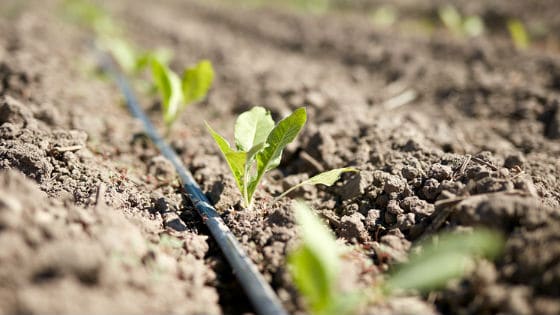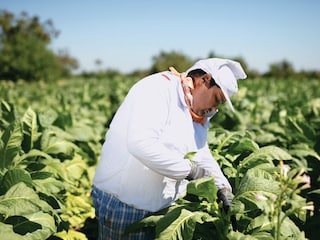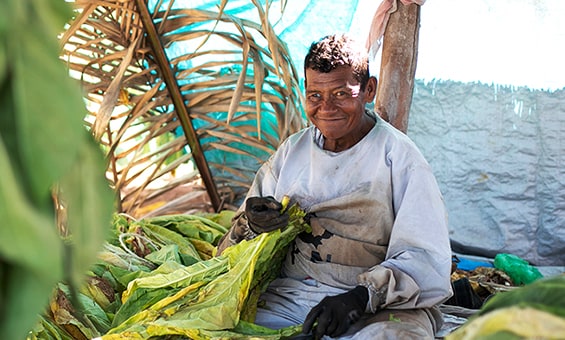
Every year in Mexico, migrant workers come down from the highlands to work and live in the tobacco-growing areas of Nayarit for the season. They often bring their families with them for the months away from home, yet conditions can be harsh, with poor sanitation and inadequate housing. There’s also the risk of workers using their children to help in the fields.
Working with its supplier in Mexico, Tabaco del Pacífico Norte (TPN – a subsidiary of Universal Corporation), PMI has focused on preventing workers from living on the tobacco fields and working during the night, by creating safe working conditions in the fields and decent accommodation off it.
Together with TPN, PMI reorganized the labor schedules and activities so field work was prohibited after sunset. TPN also increased the piece-rate paid to workers by 25 percent, and ran a campaign in the workers’ home communities so they were aware of the new requirements.

This awareness raising campaign reinforced the need for farmers to provide migrant workers with adequate accommodation and shaded areas for rest and lunch, as well as access to proper sanitation and drinking water during the hot working days. Farmers who did so were compensated.
To reduce the chances of child labor, PMI also extended the opening hours and capacity of all five childcare centers that were providing education, nutrition, and medical services for the children of the migrant families.
Finally, the company made clear that farmers who did not join in would not have their contracts renewed.
Since 2017, PMI has been working to address child labor and other labor rights issues through its Agricultural Labor Practices (ALP) program, established in partnership with Verité, our strategic partner and a leading global NGO in responsible supply chains.
The program, which started in 2011, has two main objectives:
- To eliminate child labor and achieve safe and fair working conditions for farmers and their workers within its supply chain
- To provide a decent livelihood for all contracted farmers supplying the company with tobacco
Putting a Step Change approach into practice has helped the company focus and address the root causes of recurrent issues that do not meet the ALP code standards. It has driven improvements in its operational practices, as well as those of its suppliers, including enhanced due diligence, monitoring, follow-up and consequence management.
But most important of all, it has improved the lives and working conditions of the seasonal workers in Nayarit. As of July 2018, 93 percent of workers were no longer living on the tobacco fields or working into the night, 87 percent of workers had access to adequate accommodation, and up to 450 children a day were attending child care centers during peak season.
Watch the webinar now to hear more about PMI’s Step Change in action, and learn more about its ALP program’s overall impact.
Share this
Related articles
Sustainability


